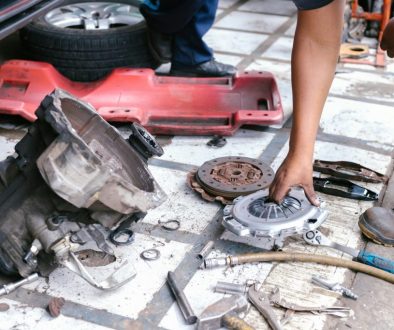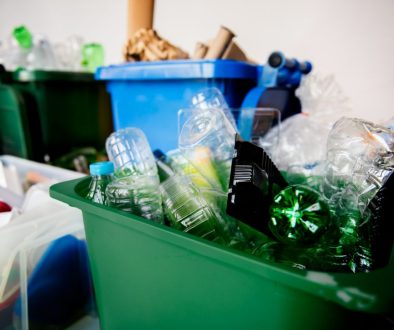Event planning is a detail-oriented process that involves everything from choosing the perfect venue to organising food and entertainment. One important aspect that’s often overlooked is rubbish disposal. With the growing concern for the environment, it’s essential for event planners to consider eco-friendly ways of disposing of waste. Not only does this help protect our planet, but it also enhances the event’s reputation and sets a positive example for attendees.
In this article, we’ll discuss ten effective ways to dispose of waste responsibly at events and contribute to a greener future.
1. Plan Ahead for Waste Reduction
Before your event even begins, it’s essential to have a clear waste reduction plan in place. This will help you identify areas where waste can be minimised. It further ensures that your event activities align with your green goals. Some strategies for waste reduction include:
- Choosing eco-friendly, recyclable materials for event décor, signage, and invitations
- Encouraging attendees to bring their own reusable water bottles, cups, and cutlery
- Limiting the use of disposable items and opting for reusable alternatives where possible
- Selecting local vendors and suppliers to reduce the carbon footprint of your event
2. Partner with Sustainable Suppliers
When it comes to waste disposal, working with eco-conscious suppliers can make a significant difference. Look for suppliers that prioritise sustainability. Offer environmentally friendly options for waste removal, such as skips that is designed for recycling and properly disposing of waste.
These suppliers will often provide a variety of skips, such as skip hire specifically for recycling, ensuring that as much rubbish as possible is diverted from landfill and processed responsibly. Additionally, partnering with local vendors can help support your community while minimising your event’s carbon footprint.
3. Set Up Clear and Accessible Recycling Stations
One of the easiest ways to encourage responsible waste disposal at your event is by providing clearly labelled recycling stations. These stations should be easily accessible and placed in high-traffic areas to maximise usage.
In addition to traditional recycling bins for paper, plastic, and glass, consider providing separate bins for food waste, batteries, and other recyclable materials that may be generated during your event.
4. Educate and Engage Attendees
To ensure that your event’s waste disposal efforts are successful, it’s essential to inform and engage your attendees. Include information about your green initiatives in event invitations and promotional materials, and remind attendees of the importance of recycling and responsible waste disposal throughout the event.
You can also incentivise responsible behaviour by offering small rewards or discounts for attendees who participate in your green initiatives, such as using reusable water bottles or properly sorting their waste.
5. Consider Composting
Organic waste, such as food scraps and biodegradable materials, can be composted and used to enrich soil rather than end up in a landfill. Consider providing composting bins at your event and partnering with a local composting facility for responsible disposal.
If your event includes catering, work with your caterer to develop a plan for composting food waste and using compostable serving materials whenever possible.
6. Donate or Repurpose Leftover Materials
Instead of consigning leftover materials to the rubbish heap, consider donating or repurposing them. Unused food can be donated to local food banks or shelters. Furthermore, leftover décor or event supplies can be donated to schools, community centres, or charitable organisations.
This not only reduces waste but also helps support your local community and extend the life of valuable resources.
7. Implement a Post-Event Waste Audit
After your event, conduct a waste audit. Evaluate the effectiveness of your waste disposal strategies and identify areas for improvement. This can help you refine your approach for future events. It also ensures that you’re continually working towards greener, more sustainable event planning.
Look at the volume of waste generated, the types of materials that ended up in the rubbish, and the success of your recycling and composting efforts. Use this information to inform your future waste reduction and disposal strategies.
8. Share Your Success and Inspire Others
Don’t be shy about sharing your event’s green successes with your attendees, stakeholders, and the wider community. Use social media and other communication channels to highlight your eco-friendly initiatives. Moreover, celebrate the positive impact that your event had on the environment.
By sharing your successes, you can inspire others to follow your lead. Also, you can encourage more event planners to adopt sustainable waste disposal practices.
9. Work with Waste Management Experts
If you’re organising a large-scale event or are unsure about the best waste disposal strategies for your event, consider working with waste management experts. These professionals can provide valuable insights and recommendations for managing waste at your event. They can also help ensure that your event complies with local waste disposal regulations.
By partnering with waste management experts, you can have peace of mind that your event’s waste is being disposed of in the most responsible, eco-friendly way possible.
10. Continuously Improve Your Waste Disposal Strategies
Finally, it’s essential to continuously evaluate and improve your waste disposal strategies to ensure that your events are as environmentally friendly as possible. Keep up with the latest trends and technologies in waste management. Moreover, don’t be afraid to experiment with new strategies and approaches.
By staying committed to responsible waste disposal, you can help protect our planet and set a positive example for others to follow.
Why Consider Eco-Friendly Ways of Disposing Waste During Events
There are several reasons why event planners should consider eco-friendly ways of disposing of waste during events. Firstly, responsible waste disposal helps to protect our planet and reduce the negative impact that waste can have on the environment. By minimising the amount of waste that ends up in landfill, we can help reduce greenhouse gas emissions and conserve valuable natural resources.
Secondly, eco-friendly waste disposal can enhance the reputation of your event and set a positive example for attendees. As more and more people become concerned about the environment, event planners who prioritise sustainable practices will be viewed favourably and attract attendees who share their values.
Thirdly, eco-friendly waste disposal can also have economic benefits. By using reusable materials and partnering with local suppliers, event planners can reduce their costs. They can also support their community at the same time.
Finally, responsible waste disposal is becoming increasingly important from a legal perspective. Many jurisdictions have regulations governing waste disposal. Event planners who fail to comply with these regulations can face fines and other penalties.
By working with waste management experts and staying up-to-date with local regulations, event planners can avoid legal issues. In addition, they ensure that their events are both environmentally friendly and compliant with the law.
Conclusion
Disposing of waste responsibly is an essential aspect of event planning that can have a significant impact on our planet. By implementing the ten strategies outlined in this article, you can reduce waste, support your local community, and inspire others to adopt eco-friendly practices. Let’s work together to create a more sustainable future and leave a positive legacy for generations to come.
Looking to hire a skip in Chester and beyond for your next event? Then look no further than Enviro Skip Hire! Our skips come in a range of sizes to suit your needs, and we ensure that all waste is disposed of in an environmentally-friendly manner. Book your skip and take the first step towards a sustainable event!




